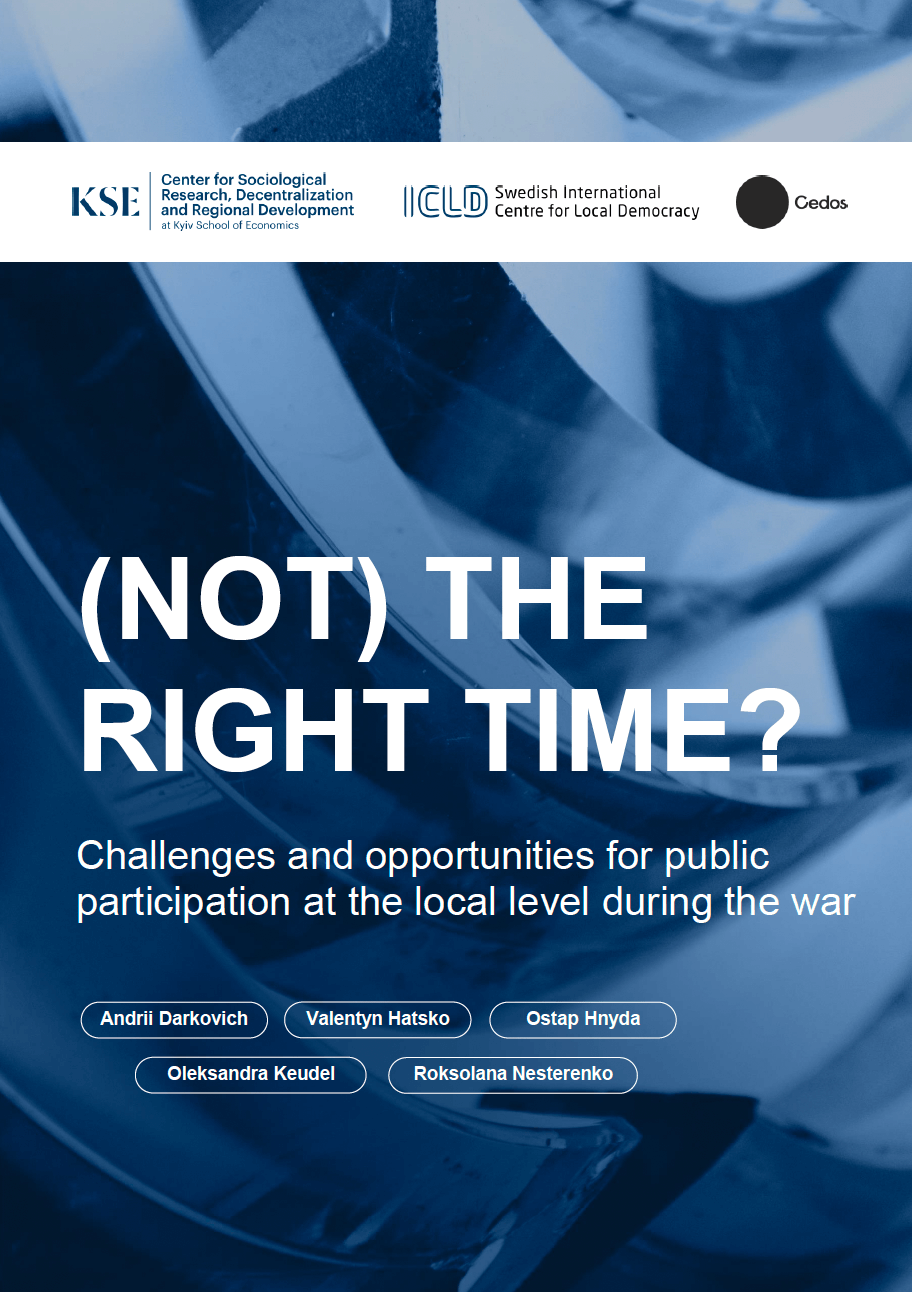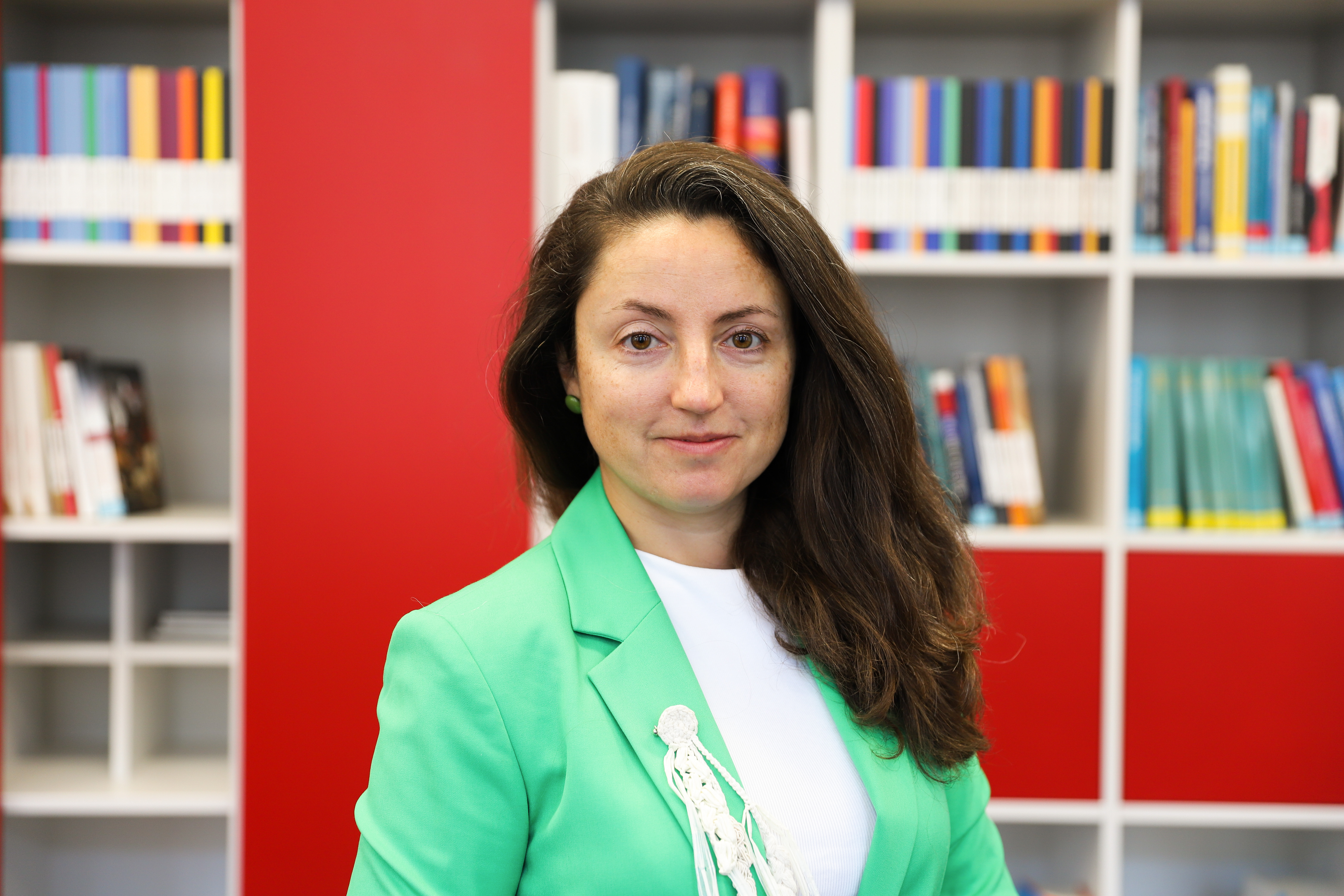- Kyiv School of Economics
- (NOT) THE RIGHT TIME? Challenges and opportunities for public participation at the local level during the war
(NOT) THE RIGHT TIME? Challenges and opportunities for public participation at the local level during the war

Following three years of full-scale war, trust in local authorities in Ukraine has remained the most stable of all government institutions, though it is also experiencing a relative decline. Protests such as the “Money for the Armed Forces” movement demonstrate that there is considerable public attention to the content of local authority decisions and their fairness and effectiveness. People may feel that their voices have been left unheard, especially when elections as a tool of democracy are not available due to the war. In this environment, the engagement of citizens in decision-making processes becomes paramount, as it is the only method of stabilizing trust, ensuring accountability, and forging a shared future vision. This is why engagement as a practice is more important than ever.
This policy brief seeks to examine the crises from the perspectives of both challenge and opportunity. Particularly in the context of Ukraine’s hromadas facing unprecedented shocks as a result of the war, civic engagement plays a pivotal role in enhancing resilience and adaptability, while providing much-needed human resources. Is it possible to engage citizens when previous practices are limited, security is a major concern, and the demographic composition is changing daily? Yes, it is. However, it depends on the reasons why hromada is doing it.
This is not just an analysis of problems — it is a search for solutions. The report is grounded in the firsthand experiences of 181 hromadas and detailed case studies covering good examples of adaptation to war. The report draws from the experience of rural and urban hromadas that organize open spaces for dialogue, involve internally displaced persons in decision-making, and use digital platforms for transparent communication even in the most dangerous conditions. These are practices that already work and can be scaled up to other hromadas (communities) and countries. Initiatives such as public reports by local mayors, youth councils launching volunteer initiatives, or digital services represent tangible steps towards hromada transformation and the restoration of citizens’ trust.
This document is not an attempt to sugarcoat the truth and talk about engagement as an end in itself. It must bring effective results. This report shows not only the opportunities, but also the real problems faced by local authorities. The main issues of citizen engagement, as our paper shows, are low trust in the authorities, lack of awareness of participation opportunities, “politicization” of public participation, restrictions due to security during the war, and changes in the structure of the population. Despite these challenges, hromada representatives confirm that engaging residents in governance remains both possible and necessary for local governments and residents. This report does not claim to offer ideal solutions. Instead, it presents real steps from the experience of actual hromadas that help them survive and adapt while maintaining the trust of target groups and residents.
Materials:
Not the rigth time?
Не на часі? (Ukraine version)

Researcher of the Center for Sociological Research, Decentralization and Regional Development

Data Analyst of the Center for Sociological Research, Decentralization and Regional Development

PhD, Founding Director of the Center for Democratic Resilience at Kyiv School of Economics
